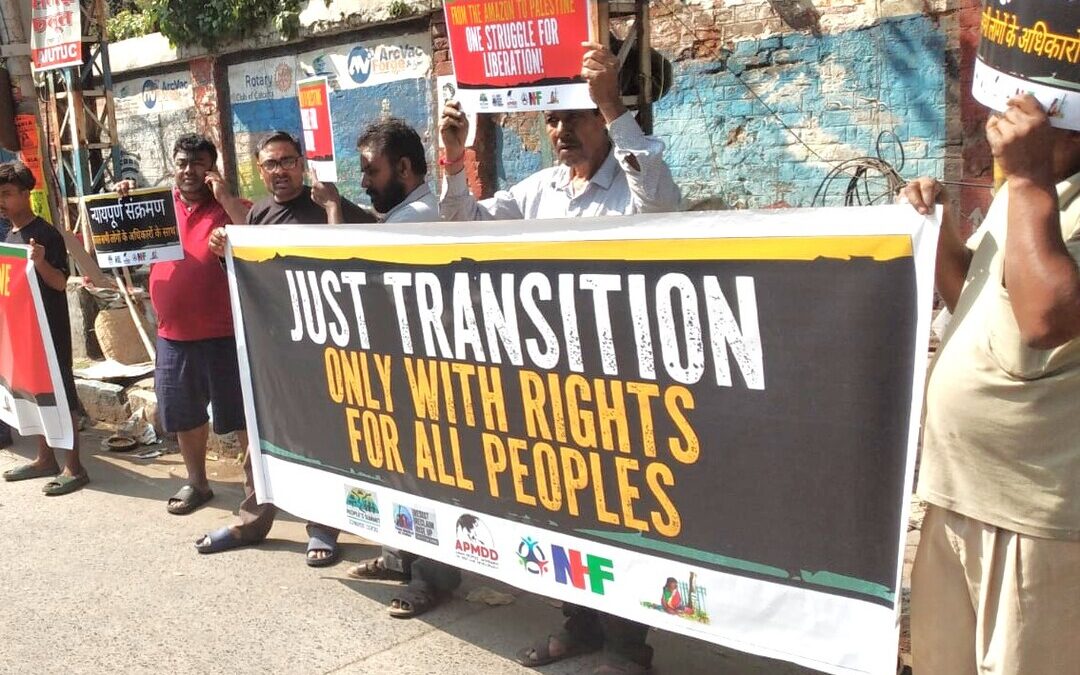Finance Gap Emerges as Biggest Threat to COP30’s Push for Just Transition
Civil society warns COP30 progress hinges on finance as nations face rising tensions over a credible just transition.
Civil society groups said COP30 entered its midpoint with rising concern over stalled finance talks and a widening trust deficit between wealthy and developing nations.
They argued the climate summit risks repeating past failures unless governments bridge political divides and commit real money for climate action.
Unease Grows as Talks Enter Crucial Phase
Negotiators arrived in Belém with guarded hope after three weak COP outcomes. But frustration deepened through week one as countries clashed over finance, adaptation and the agenda itself.
Brazil’s President Luiz Inácio Lula da Silva opened the summit with a stark warning. He said climate change is a present crisis that hits the poorest the hardest. His call for a “COP of Truth” set the tone for a week marked by concerns about climate misinformation and slow progress on core issues.
Talks moved smoothly in early technical sessions due to a procedural shortcut that grouped four agenda consultations. Yet the core agenda remains unsettled. Delegates held short stocktakes, but they did not ease concern among developing countries. They fear their demands are being diluted as political questions linger.
Just Transition Push Faces Early Resistance
The first major political flashpoint emerged in the just transition negotiations. In a significant shift, the G77 plus China called for a Global Just Transition Mechanism. The proposal echoes long-standing demands from civil society groups that advocate for a Belém Action Mechanism.
The European Union also backed a new institutional arrangement. Its plan falls short of the G77 proposal but marks a clear policy shift.
Still, the apparent breakthrough remains fragile. Wealthy countries resisted the idea of a new mechanism. They argued that existing structures can manage transition challenges despite evidence of limited reach and slow delivery.
Civil society groups said the pushback shows an unwillingness to accept responsibility or commit to coordinated global action.
Delegates said a credible deal must place workers at the center of climate planning and rebuild trust across economies.
Minerals and Trade Add New Tensions
Talks on the scope of the just transition gained traction when Parties showed broad support for including transition minerals in the formal text for the first time.
But trade policy disputes created new friction. Developing countries demanded that unilateral border measures, including the EU’s Carbon Border Adjustment Mechanism, be debated in the climate process. Developed countries rejected that approach outright.
Carbon market discussions heightened concern. Some Parties sought weaker safeguards under Article 6.4. Observers warned that such changes would undermine human rights and environmental integrity.
Funding Shortfalls Drive a Widening Trust Gap
Most negotiating tracks circled back to the same issue: finance. Developing countries said they cannot deliver on their climate plans without predictable grant-based funding. Many developed countries resisted language implying obligations under the Paris Agreement.
The Loss and Damage Fund opened its first call for proposals. But only $250 million is available through 2026, far short of global needs.
Adaptation Talks Advance but Leave Delivery Unclear
Adaptation issues dominated the first week. A draft Global Goal on Adaptation text proposed tripling finance by 2030 to at least 120 billion dollars each year. Civil society groups strongly supported the idea.
Yet Parties remain divided on which indicators to adopt. Developing nations argued that the text still fails to reflect guidance from earlier sessions. They repeated that adaptation without finance is merely political rhetoric, not real support.
Mass Mobilization Returns to COP
Belém saw the largest street mobilization at a COP in years. Up to 70,000 people marched in a peaceful demonstration that featured a theatrical funeral for coal, oil and gas. Indigenous leaders demanded land rights, consent-based decisions and an end to mining abuses linked to transition minerals.
Civil society leaders said Indigenous groups must gain stronger access to talks to ensure their rights are protected.
Summit Prepares for High-Level Negotiations
Ministers will enter the talks after Tuesday. UN climate chief Simon Stiell urged countries to compromise, saying small concessions could unlock meaningful progress.
The COP30 Presidency will publish a report on Sunday on finance, ambition, trade measures and transparency. Delegates expect the document to guide talks in the second week.
What Week Two Must Deliver
Civil society leaders said week two must resolve the agenda dispute and confront the finance gap head-on. They want stronger commitments on adaptation funding and clearer obligations tied to the Paris Agreement.
They also called for the Belém Action Mechanism to serve as the basis for a global just transition system. Other demands include strict safeguards for the carbon market, recognition of trade justice and clear direction on a fossil fuel phase-out.
They said the success of COP30 hinges not on an orderly process but on outcomes for communities already hit by climate impacts.
Also Read:
Rich Nations to Face Legal Reckoning Over Climate Finance at COP30
Finance Gap Emerges as Biggest Threat to COP30’s Push for Just Transition
Nirmal Menon
Related posts

Subscribe
Error: Contact form not found.


